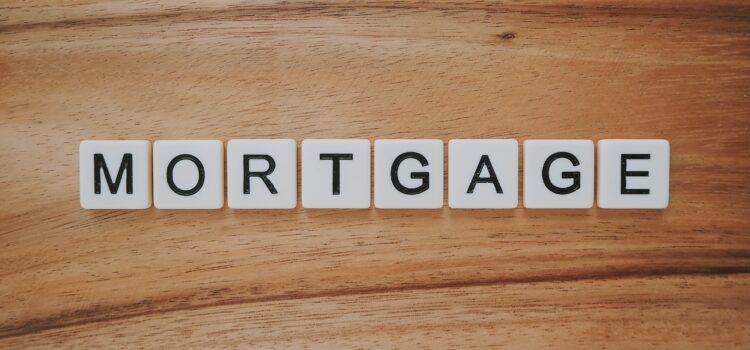
Back to Basics:
A mortgage is the primary tool which helps a consumer purchase a primary residence. The mortgage industry can be quite confusing with the various terms and mortgage options. I will discuss refinancing, amortization, traditional versus nontraditional lenders, the down payment. In my next post, I will discuss FHA, USDA, and VA Loans, 15 versus 30 year loans, and the various types of mortgage loans.
Did you know that mort in French means death? I find this interesting as people are told to buy houses, as it is the “American Dream.” Are you meant to just live, pay your mortgage and die? That does not sound like a happy life to me!
All jokes aside, the mortgage is essential to purchase a home, but you need to keep your payments in check and manageable based on your income and personal financial comfort. For most, a home will be their greatest asset that historically has increased over time. Let’s review the basic of mortgages, starting with amortization.
Amortization:
Always review and check on your amortization schedule for your mortgage or even car note. The amortization schedule details the full length of the loan and how much of your payments will go to principal versus interest.
In the initial years, a large portion of your mortgage payments will go to interest. It is not until later in the loan amortization that the payments go more towards principle.
Review your amortization schedule!
By simply adding a few extra dollars here and there per month, you will save a lot on interest and pay off your mortgage sooner than planned! End of the day, paying off your mortgage is the goal for everyone to accomplish. Your home is usually your greatest asset. The faster you pay it off, the faster YOU own it!
Pro Tip:
Ask your lender if you can make additional principle only payments on your mortgage! This is a great way to reduce the total amount due and save on interest! Even a few extra dollars a month will go a long way.
Points:
Mortgage points…Another confusion term.
There is both origination points and discount points. Depending on the lender, each point is roughly 1% of the mortgage amount. If you have a $500,000 mortgage, you will have 5 points or $5,000.
As a home buyer, you can purchase these points from the mortgage company and thereby lower your interest rate on your mortgage. Again, it can depend on the lender, sometimes it is very meaningless and other times it could be closer to 0.10% – 0.25%! If you could save a few percent on your mortgage, this could result in significant cost savings long term!
Remember, you have to look at the breakeven calculation. Take the total cost of the points and divide that by the monthly reduction in your mortgage payments. If you live in the home longer than the breakeven, it makes sense to take advantage of purchasing the points! Ask your lender if they will offer points! A little extra discount on your mortgage interest rate can save a significant amount of money for you long term!
Traditional versus Nontraditional lenders:
Traditional large banks will usually have slightly higher mortgage rates than smaller lenders. The upside with the slightly higher rate is your mortgage will stay with this large bank. Additionally, you can obtain, at times, better customer service with any questions you may have during the life of your loan.
Nontraditional smaller lenders have been growing in popularity. These smaller lenders are usually much faster at processing loans and because of their size, they can offer more competitive rates that are lower than the traditional large banks.
The only downside is your mortgage is usually sold to other lenders. Does that matter? Depends. You will have a contact where your mortgage is located, but this can change multiple times. All comes down to preference. I prefer finding the lowest mortgage rate!
Shop around with both large banks and smaller lenders. End of the day, it is your mortgage, so you might as well find the best deal and save money with a lower interest rate!
Down Payment:
The down payment is probably the largest hurdle in purchasing your first home.
For a conventional loan, you will need a 20% down payment of the purchase price. If you are looking at a home, simply take 20% of the asking price to estimate what you will need as the down payment. For example, if you are looking at a $500,000 house, you will be required to pay 20% down or $100,000.
Yes, you can have a smaller down payment, but at a cost. The cost is PMI or Private Mortgage Insurance. If you put down less than 20% to the value of your loan, you will be required to pay PMI in addition to your monthly mortgage payment. Check out next week’s post to learn more about PMI and various types of loans.
Refinance:
If you have a higher interest rate, you should consider refinancing your mortgage. This can be a great tool to lower your monthly payments and total interest owed. As interest rates continue to drop in the current environment, you could save a lot of money over the long term.
How to see if you should refinance?
SHOP AROUND! There are many large and small lenders. Make sure you shop around and see which offers the best rates and refinance costs.
Example:
Take a 30 year, $250,000 mortgage at a 4.00% interest rate and monthly payment of $1,194. You have shopped around and realized you could refinance your 30 year at a 3.00% interest rate, and the cost of refinancing in this example would be $3,500. A 3% interest would reduce your monthly payments to $1,054.
Is a good deal? Well, assuming you will live in this same home, you want to see the time it takes to breakeven. You would divide the cost of the refinance by the amount you will save each month on your mortgage.
If your monthly payments drops $140 per month in the example above, with this refinance, you would breakeven in 25 months or just over 2 years ($3,500/$140 = 25)! If you plan to live in the house longer than 25 months, then a refinance would be a great opportunity to save money long term!
Learning about mortgages is essential to your personal finances. Whether you rent or hope to own one day, the topics covered help you become more informed when you purchase your home and need a mortgage! Your financial future is up to you and only you. What are you going to do about yours?
Until next time,
Zach


